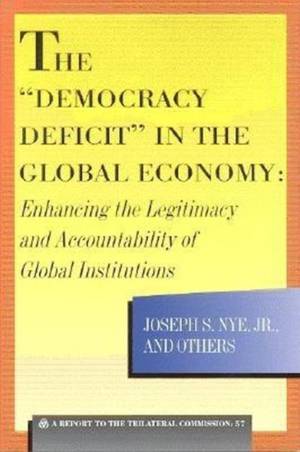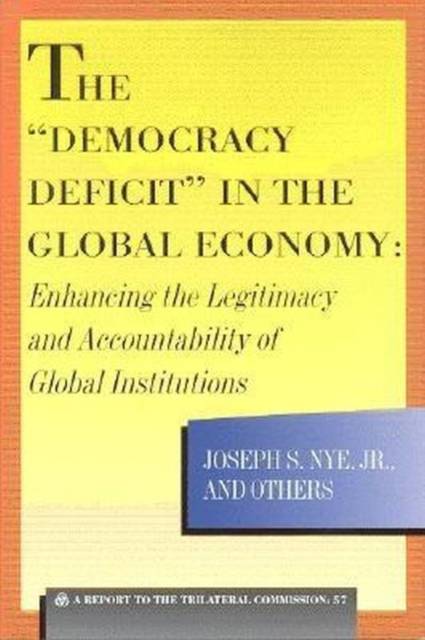
- Retrait gratuit dans votre magasin Club
- 7.000.000 titres dans notre catalogue
- Payer en toute sécurité
- Toujours un magasin près de chez vous
- Retrait gratuit dans votre magasin Club
- 7.000.0000 titres dans notre catalogue
- Payer en toute sécurité
- Toujours un magasin près de chez vous
The "Democracy Deficit" in the Global Economy
Enhancing the Legitimacy and Accountability of Global Institutions
Joseph S NyeDescription
We need to think harder about the norms and procedures for the governance of globalization. writes Joseph Nye in setting out the goals of this report. Focusing on the roles of the World Trade Organization, International Monetary Fund, and World Bank, Professor Nye poses six questions to contributors Jessica Einhorn, Béla Kádár, Hisashi Owada, Luis Rubio, and Soogil Young. 1.Protesters assert that institutions like the WTO, the World Bank and the IMF are effectively accountable to no one. Is there any validity to their claims? 2. Does it make any sense to speak of democracy at the global level in the absence of a strong sense of political community? 3. Within the European Union it is often suggested that a stronger European Parliament will reduce the sense of a democratic deficit as the regional community evolves. Does the analogy make sense on a global scale? 4. What roles can and should NGOs play in accountability at the global level? 5. Representativeness is a critical dimension of legitimacy. How should we think about the representativeness of the governance of the Fund, Bank, and WTO? What changes should be made? 6. Defenders of international institutions could experiment to improve accountability. What experiments in processes and procedures would you recommend? Nye suggests There is no single answer.... But the need to develop answers is absolutely essential.... We need changes in processes that allow politics more play and that take advantage of the multiple forms of accountability that exist in modern democracies.
Spécifications
Parties prenantes
- Auteur(s) :
- Editeur:
Contenu
- Nombre de pages :
- 88
- Langue:
- Anglais
- Collection :
- Tome:
- n° 57
Caractéristiques
- EAN:
- 9780930503840
- Date de parution :
- 08-12-03
- Format:
- Livre broché
- Format numérique:
- Trade paperback (VS)
- Dimensions :
- 152 mm x 229 mm
- Poids :
- 170 g

Les avis
Nous publions uniquement les avis qui respectent les conditions requises. Consultez nos conditions pour les avis.






